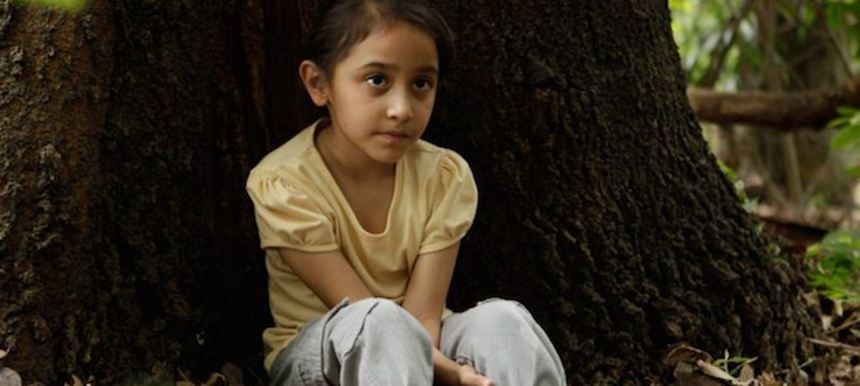Morelia 2013 Review: MANTO ACUÍFERO (THE WELL) Sees The World Through The Eyes Of A Misunderstood Girl

Director Michael Rowe is a man who talks slowly. He met the press after the Morelia Film Festival screening of his second feature film Manto Acuífero (aka The Well), telling us that it's a very personal effort. And, indeed, Rowe's own personality doesn't contrast at all with the tone and rhythm of Manto Acuífero. It's not a film that moves fast and the director's main intention is clear right from the beginning: he wants us to see how a very particular period of a little girl's life unfolds naturally.
Manto Acuífero is minimalist, filmed around one house in the Mexican state of Puebla. Since it follows the mentioned girl and it's set during a school break, we don't see when the characters (the girl's mother and stepfather complete the cast) go further than the house's garden. It's all about day-to-day issues, which usually end with the mother telling a bedtime story to her daughter. It's about not paying attention to the reality by believing everything is all right, but how things could be fine for a girl if her father is no longer around?
The themes explored in Manto Acuífero aren't necessarily unfamiliar and we soon realize where the director wants to take us. It's an honest portrait with the consequences of a divorce, though there's really no plot but rather cold facts and a background story never abruptly revealed. Rowe sometimes uses conversations between the protagonists to give the audience more details but the most interesting aspects of the film are usually built with nothing more than images and character's reactions.
The first truly beautiful shot is an extreme close-up to a snail, which on the paper doesn't mean much aside of being a great way to capture nature on camera. However, this sequence perfectly represents the core of the film: we have first the little girl observing the snail, fascinated by it, and eventually taking it to her mother, who angrily throws it away and orders the girl to stop doing stuff like that in the garden because it might be dangerous. All the beauty of the close-up quickly transforms in a display of a mother being hardly tolerant though her action is disguised as protective.
Everything in Manto Acuífero has to do with parents being loveable and comprehensive, wanting to positively interact with their daughter (by reading books or painting with her), but only at first sight. There's something happening inside the girl's head that for us is extremely understandable and sad while for her parents is pretty much inexistent. Fortunately, Rowe's film is here giving its full attention to the little ones who are in the middle of an adult mess, who want to explore nature and be loved. It's a regarding and complete work for the patient viewer.







